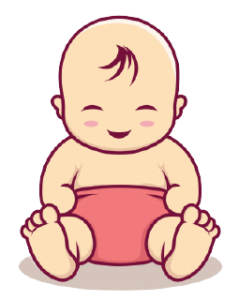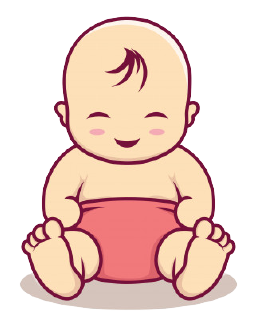We grind our teeth when we are angry. But why do our babies grind their teeth?
It is not comfortable for us to watch or hear the sound of the babies grinding their teeth. Our babies go through many stages of growth in their first year of life. Teething is one of such major milestones. When the teeth erupt, his gums will be sore and swollen. The babies may become fussy as a response to a teething discomfort. They will try new ways to soothe their pain, and teeth grinding can be one such technique.
What if your baby is not teething and grinds his teeth regularly as a habit? Keep reading to know what causes frequent grinding of teeth and how to deal with it.
CONTENT
1. Why does my baby grind his teeth?
3. What causes bruxism in babies?
4. What are the home remedies for bruxism?
5. When should I be concerned about bruxism in my baby?
1. Why does my baby grind his teeth?
Regular grinding of teeth can be caused by a medical condition called “Bruxism”. Individuals of any age, babies, kids, or adults can be affected by this condition. Bruxism can make its appearance throughout the day, at night, day, or morning.
When bruxism appears continuously at night or in the evening, it is called “Sleep Bruxism”. Bruxism is not a serious health problem and will fade away naturally or with mild treatment.
If your kid has got his permanent teeth and is still grinding them, you have to be cautious because bruxism can damage their adult teeth. Too many teeth grinding can cause temporomandibular joint disease (TMJ) in older kids and adults.
2. Does my baby have bruxism?
Young babies cannot communicate their discomforts to you. So, it will not be easy to know why they are grinding their teeth or if it causes them pain. Teeth grinding is a normal, painless behavior in most cases.
But, if your baby shows the following symptoms, he might be experiencing bruxism.
- Grinding teeth or clenching the jaws frequently
- You can hear them grinding their teeth
- Teeth are damaged or worn off
- Pain in the jaws or soreness
- Ear pains
- Pains in the temple area
3. What causes bruxism in babies?
Many babies get their first tooth around seven months of age. But there are babies whose first tooth erupts early at the age of four months. They will get more teeth during the first year of their life, and this is when you will start to feel or hear that they are grinding their teeth.
Grinding teeth is a pain-relieving mechanism for young babies. Your baby will grow out of it when they are done teething. If it did not, it is most likely that Bruxism will fade away at teenagers.
Research confirms that 1 in 3 people experience bruxism. Bruxism in adults can be caused by many reasons such as stress, anger, and exposure to a particular stimulant like tobacco or caffeine. The personality type can also trigger bruxism but there are cases where the cause is unknown.

4. What are the home remedies for bruxism?
Bruxism in babies is caused mainly due to teething pain. If you help them to relieve their teething comfort, they will eventually get rid of the habit of teeth grinding.
There are many ways you can help a teething baby.
Dip a washcloth in water and freeze it for about an hour. Take it out and let your baby bite on it. The coldness of the washcloth will numb the sore gums of your baby.
If you are breastfeeding, make breastmilk popsicles for your baby. It will keep his tummy full while relieving the teething pains. This is a great pain-relieving technique for babies of all ages. Especially for early teethers who get their first tooth before six months of age when breastmilk is all they can eat.
You can offer popsicles made of fruit for babies who are older than six months. If your baby is already eating solids, teething biscuits are also a good option.
There are many types of teethers that you can buy for your baby. Below are few options available for you to choose from.
- Teethers with a little amount of liquid inside them get chilled quickly and last longs. They also provide greater comfort for the babies. Nuby Soother Rings are one of the best icy teethers available in the market.
- Natural rubber teethers with no phthalates or bisphenol A (BPA). Vulli’s Sophie the Giraffe is a natural rubber teether that I would like to recommend.
- For anyone who is looking for a natural teether, Maple Teethers is the best choice because of its natural antimicrobial property.
- If you are tired of your baby dropping and throwing away his teethers, go for a silicone teething necklace. A teething necklace that will allow your baby to chew on it when he needs it. You will have no worries about losing the teether or leaving it at home.
If your older baby is grinding his teeth continuously, it can be bruxism caused by stress. Try relaxation techniques such as meditation, mindfulness, dancing, singing, or any such activity that makes your kid happy.
In case you do not think that it is not caused by stress, contact your dentist as teeth grinding in older kids can cause other complications in jaws and damage their permanent teeth. Your dentist might prescribe a custom-made mouthguard to protect your kid’s teeth from damage that can occur while grinding teeth.
5. When should I be concerned about bruxism in my baby?
In most cases, teeth grinding has no impact on your baby’s health. But, keep an eye on the teeth of your baby as they might get damaged from grinding. If you suspect that the habit of teeth grinding is damaging or wearing off your baby’s teeth, contact your pediatrician or the dentist.
There will be ear pains, headaches, jaw pains, and soreness caused by jaw clenching. These symptoms indicate that your child needs medical intervention regarding their bruxism. You should not hesitate to seek medical attention if you feel like anything is affecting your child’s health negatively.


